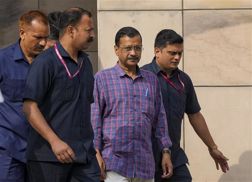
Thinkstock photo
London, February 11
Researchers have found the reason why mosquitoes prefer to feed on blood from people infected with malaria, an advance that can lead to new ways to fight the deadly disease without using poisonous chemicals.
“The malaria parasite produces a molecule, HMBPP, which stimulates the human red blood cells to release more carbon dioxide and volatile compounds with an irresistible smell to malaria mosquitoes. The mosquito also eats more blood,” said Ingrid Faye from Stockholm University in Sweden.
Faye and her colleagues from the Swedish University of Agricultural Sciences and KTH Royal Institute of Technology in Sweden discovered that most malaria mosquitoes, were attracted by HMBPP-blood, even at very low concentrations.
The mosquitoes are also attracted more quickly and drink more blood.
Moreover, these mosquitoes acquire a more severe malaria infection - higher numbers of parasites are produced.
This indicates that the extra nutrients from the larger meal of blood are used to produce more parasites, researchers said.
Neither humans nor mosquitoes use HMBPP themselves, but the parasite needs the substance to be able to grow.
“HMBPP is a way for the malaria parasite to hail a cab, a mosquito, and successfully transfer to the next host,” said Noushin Emami from Stockholm University.
“This seems to be a well-functioning system, developed over millions of years, which means that the malaria parasite can survive and spread to more people without killing the hosts,” said Faye.
These results may be useful in combating malaria. Today the most efficient way is to use mosquito nets and insecticides to prevent people being bitten.
Resistance against the insecticides require new control methods to be developed to tackle the mosquitoes.
In addition, medicines, even the drug awarded with the 2015 Nobel Prize, become progressively inefficient when the parasite becomes resistant to them and new drugs must be developed constantly, researchers said.
A vaccine seems far away, said Faye. A major step forward in the fight against malaria would be to create a trap that uses the parasite’s own system for attracting malaria mosquitoes.
The study was published in the journal Science. — PTI


























